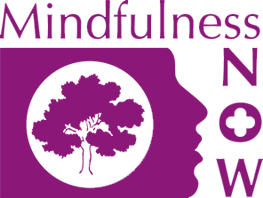In today’s world, anyone might think that gaining material possessions is the key to happiness. Adverts on the television, at the cinema, at bus stops, on the internet constantly tell us that all we need to do is buy this appliance, get that product, wear these clothes or eat this food and we’ll have the perfect life and live happily ever after. But once we buy whatever they’re selling, we’re then told we need the latest version, an upgrade or the most up to date fashion – then we’ll be happy! And so it goes on… And if you can win the lottery, well that would be your life sorted forever, surely?!
So make sure you’re in a position to buy and have whatever you want, then you’ll be happy.
Or will you?
Research actually suggests that it’s not in what we receive that we have the most happiness but actually in what we give. As long as our basic needs are met and we are able to live relatively comfortably, then very little after that counts.
MRI scans show that those parts of the brain that are responsible for feeling pleasure when we receive things are equally active when we give, if not more so.
If we suffer symptoms of anxiety and depression, it often points to the fact that we are focusing a lot of our thoughts on ourselves, and usually negatively – what has happened already or what we think might happen in the future; everything that has gone wrong or might go wrong. When we start to shift a little of the focus towards others and what we might be able to do for them then our perceived levels of happiness and well-being actually increase.
Even doing a very simple act of kindness, for example, letting someone in front of you in the line of traffic, holding a door open for the person that’s following, or even smiling at a stranger as you pass them by in the street can have an effect – by carrying out these simple acts you’re putting someone else first; another way to think of it is that you’re showing them a very basic level of love and compassion.
And we all want to be loved, do we not?
And someone else putting us first helps us to feel this. In the same way, when we put someone else first it makes us feel good – no matter how small that act of kindness might be.
A favourite mindfulness meditation is called Loving Kindness. This involves a focus, firstly, on ourselves, offering ourselves a little love, good health and well-being. Sometimes we forget how important we are in our own lives! Then the focus shifts gently to someone we love, again offering them some loving thoughts in our imagination. After this we are asked to focus our attention on someone whom we have perhaps seen that day but don’t know very well – perhaps someone who served us at the shop or someone we saw at the bus stop. Again, we attend to them in our thoughts wishing them well in health and happiness. And lastly, and perhaps this is the most difficult part of the meditation, we offer those same loving thoughts and good wishes to someone whom we perhaps have difficulty with, offering them the same compassion we did with ourselves and our loved ones.
In this way, through a very simple meditation practice, we perform a very gentle form of ‘self-psychotherapy’ in which some kind of healing may take place.
So, compassion may just be the key to happiness!
By Rachel Broomfield





